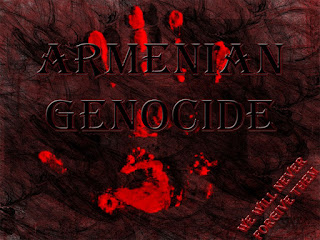Avedian, Vahagn, The Armenian Genocide 1915: From a Neutral Small State’s Perspective, Uppsala, 2008
The aim of this study is to find out how the Armenian massacres in the Ottoman Turkey during World War I were perceived by a neutral small state, namely Sweden, what options did Sweden have to take, what the response was and why. The Swedish reaction should be of special interest since, Sweden, as a neutral state during the entire conflict, had no immediate involvement or interest in the ongoing conflict, thus, any subsequent reaction to the massacres would have been from a humanitarian perspective. The overall issue to be addressed is what a small neutral state such as Sweden was capable of doing when faced with a humanitarian crisis during wartime, how did they choose to react, and how can this reaction be explained. In order to answer this issue one must first chart 1) the amount of information in regard to the Armenian massacres and their nature available to the Swedish governmental and non-governmental actors 2) what kind of a response this information resulted in? 3) how can that reaction be explained and does it correlate with the response needed to cope with similar issues?
However, surveying the full amount of information needed for understanding and analysing the response to the massacres in order to exhaustively answer the central issue is beyond the scope of a master thesis paper and requires a larger study. Thus, this paper attends to the first part, namely charting the information at hand, while the analysis of the response, especially a neutral small state’s during an ongoing global conflict will be left for future studies. Through studying published news articles, books, and brochures authored by Swedish and other missionaries and field workers and reports from the Swedish Diplomatic and Military missions in Ottoman Turkey, this paper has attempted to clarify the amount and the nature of the information about the WWI massacres in the Ottoman Empire. Essential for such study, besides the theory regarding humanitarian intervention, is the theory stipulating that the behaviour of small states, such as Sweden, differs from that of major powers in the international relations. While major powers rely on their financial resources and strength as forcible means, small states tend to advocate a foreign policy which is of brief duration, more local and inclined to support international cooperation organisations such as the League of Nations and the United Nations.
The surveyed information in this study shows that the amount of information about the Armenian massacres in Ottoman Turkey were replete. Although the studied material does not cover the full scope of the required data needed to complete the study, this paper will show that the Swedish Foreign Ministry and Government was fully aware of the ongoing annihilation of the Armenian Nation and the need of a humanitarian intervention.

Inga kommentarer:
Skicka en kommentar